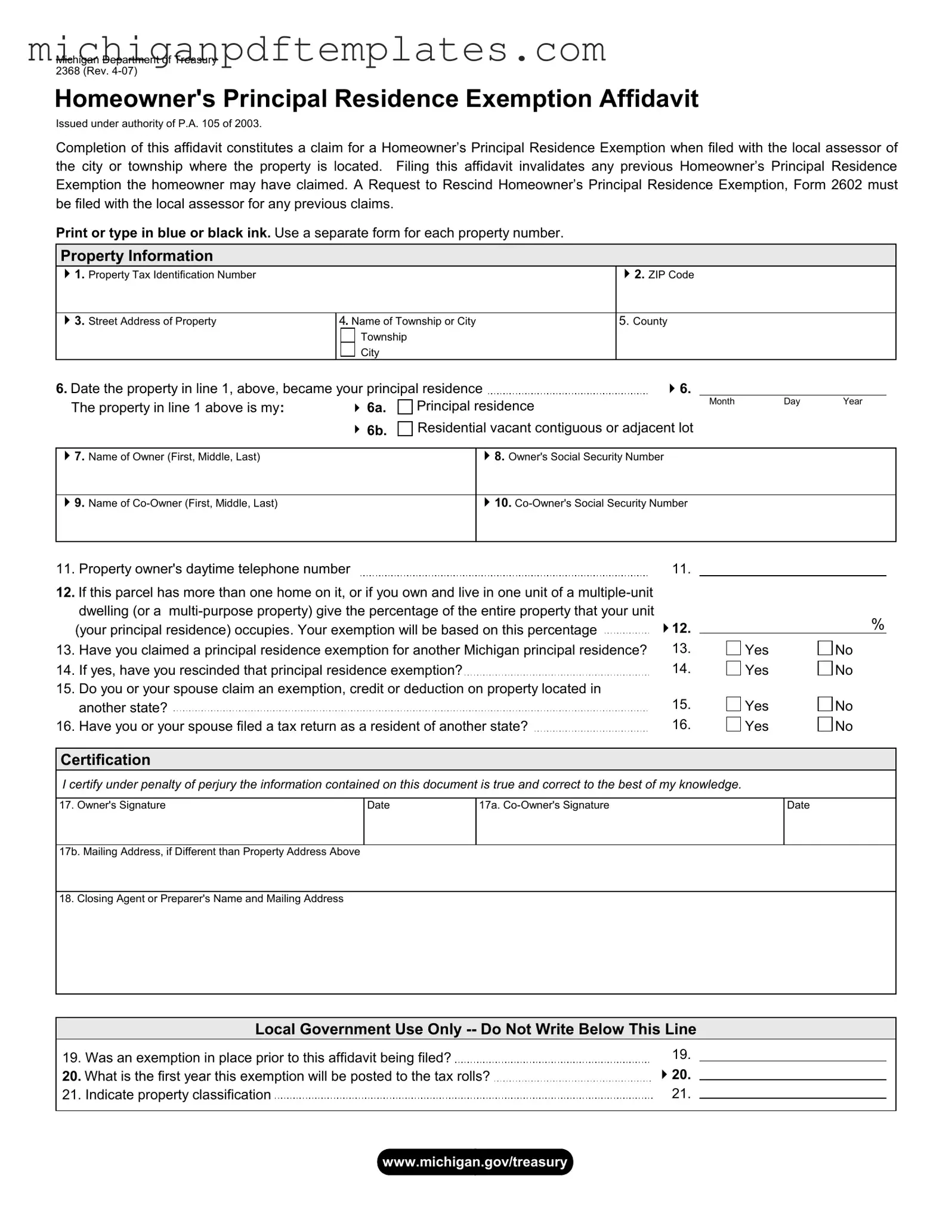Fill in Your 2368 Michigan Form
The Michigan Department of Treasury 2368 form, also known as the Homeowner's Principal Residence Exemption Affidavit, is a document that allows homeowners to claim an exemption from a portion of local school operating taxes. By completing and filing this affidavit with your local assessor, you can potentially reduce your property tax burden. If you're ready to take advantage of this exemption, fill out the form by clicking the button below.
Get Your Form Now

Fill in Your 2368 Michigan Form
Get Your Form Now

Get Your Form Now
or
▼ PDF Form
Finish this form quickly and move on
Fill in and complete 2368 Michigan online quickly.